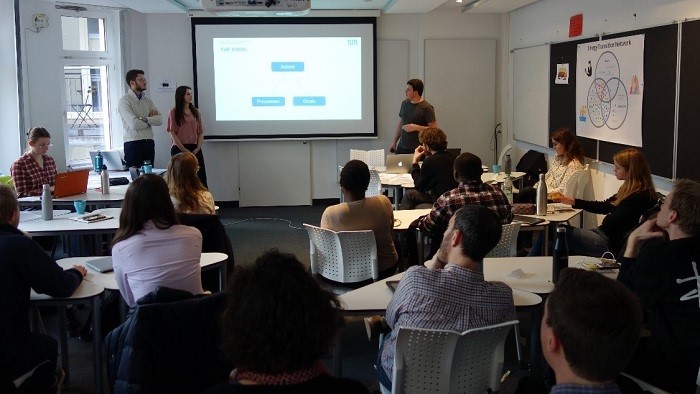Internships are an integral part of the Elite Graduate Program "Responsibility in Science, Engineering and technology". Their chief purpose is to give students an opportunity to apply the knowledge and skills they gained from their academic training in a practical setting.
The Science School allows students to further integrate theory and practice. Having completed their internships, students can now analyze their experiences through the critical perspectives they are developing as practically-oriented experts. Presentations concerned a diverse set of internships related to corporate communication, European energy policy, innovation, sustainability, smart mobility, urban infrastructure, and the management of organizations.
Students draw on their experience to build deeper theoretical understandings of the responsibility issues that emerge at the intersections of society, politics, and the economy with science, engineering, and technology. In turn, these insights are employed to make the most of the opportunities and overcoming challenges of implementing responsibility goals while working with different stakeholders in a range of practical contexts.
Insights from a Member of European Parliament
Cristian Ghinea, Member of European Parliament from Romania, joined the Science School as a distinguished guest. He is part of the Renew Europe Group, Vice-Chair of the Committee of Regional Development, as well as a member of the Committee on Budgetary Control.
Mr. Ghinea offered insights about the importance as well as practical challenges of informing parliamentary work with expert knowledge. In a Q&A session with the conference participants he gave advice about how experts could effectively communicate with politicians, provided examples of the intersections of politics and science from his own work on heath policy in the EU, and gave details about the internal workings of parliamentary procedures. His participation was greatly appreciated by attendees of the Science School as he gave further perspectives on how to effectively achieve responsibility goals.
Text: Elite Graduate Program "Responsibility in Science, Engineering and Technology"


